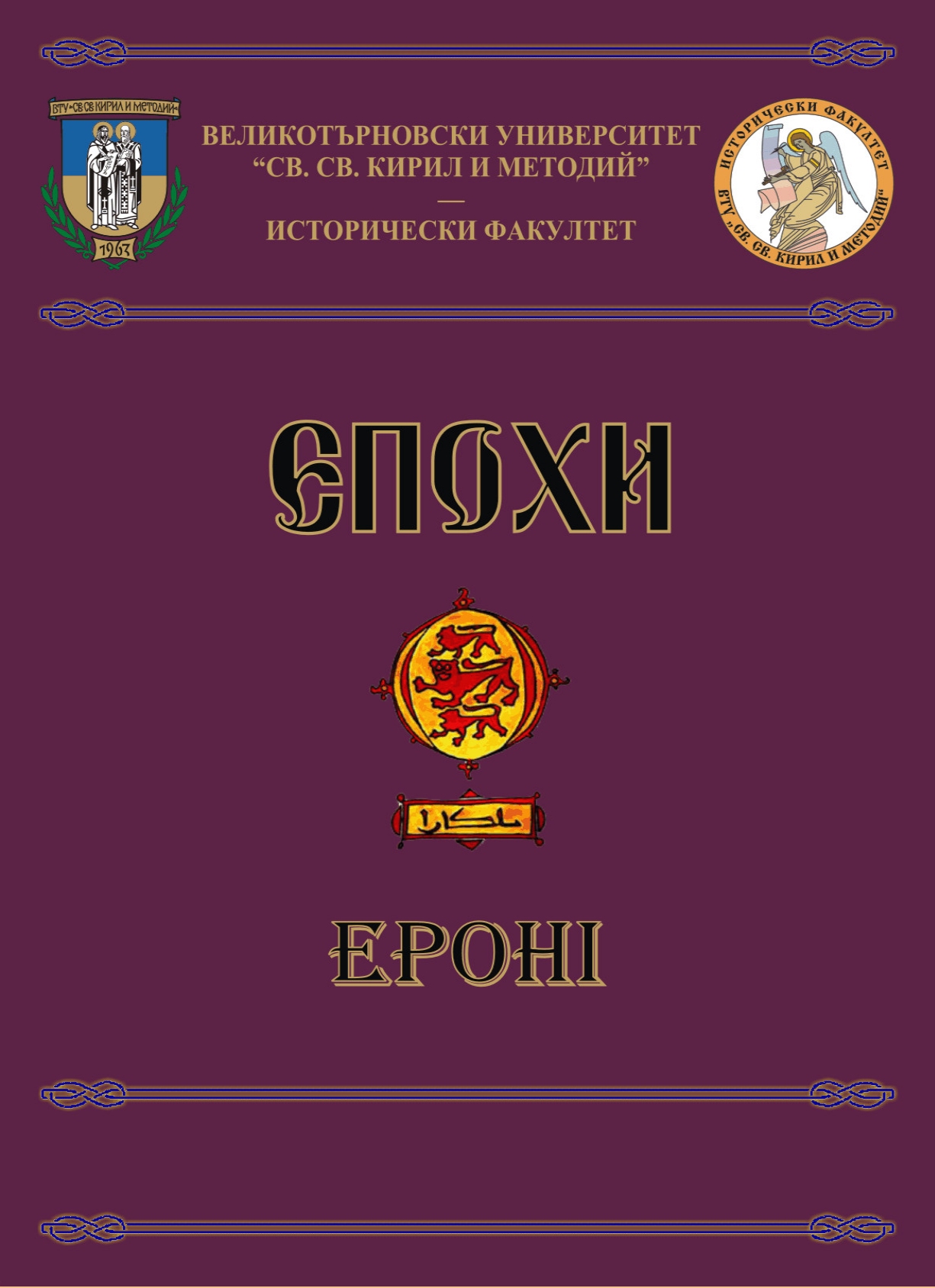
We kindly inform you that, as long as the subject affiliation of our 300.000+ articles is in progress, you might get unsufficient or no results on your third level or second level search. In this case, please broaden your search criteria.


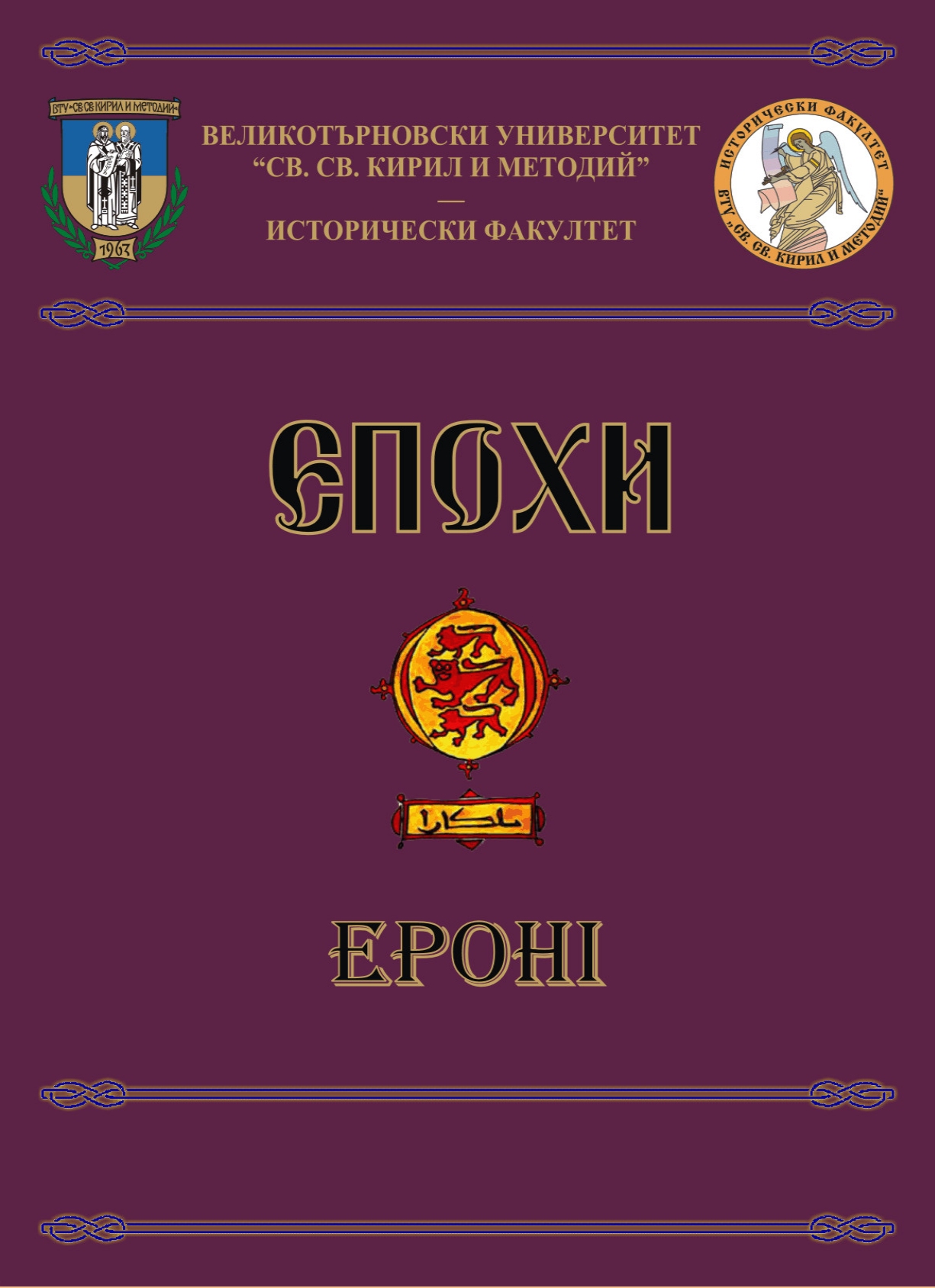
The origin and development of the Bulgarian education system is an issue that is increasingly attracting the attention of researchers. This presentation focuses on the activities of Marin Drinov as head of the Ministry of National Education, in order to highlight his contribution to the establishment of the Bulgarian education system.
More...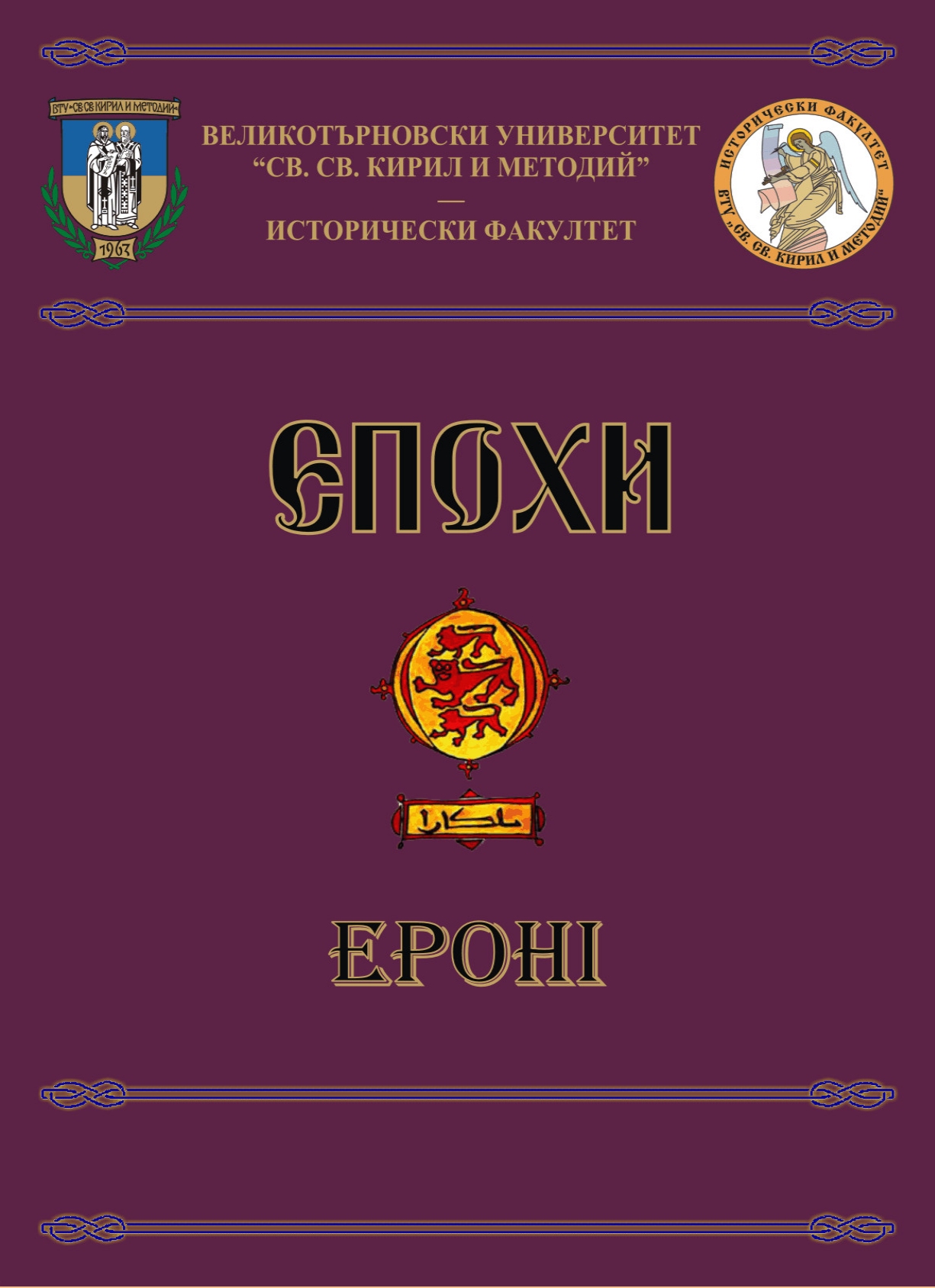
The article deals with the establishment and consolidation of the judicial system in the Bulgarian Armed Forces at the end of the 19th and the beginning of the 20th century. The author analyses the main laws and regulations concerning the military jurisprudence in the Bulgarian Principality (Kingdom, after 1908). The article traces the main stages of development of military jurisprudence as well as the practical application of the Military Penal Code.
More...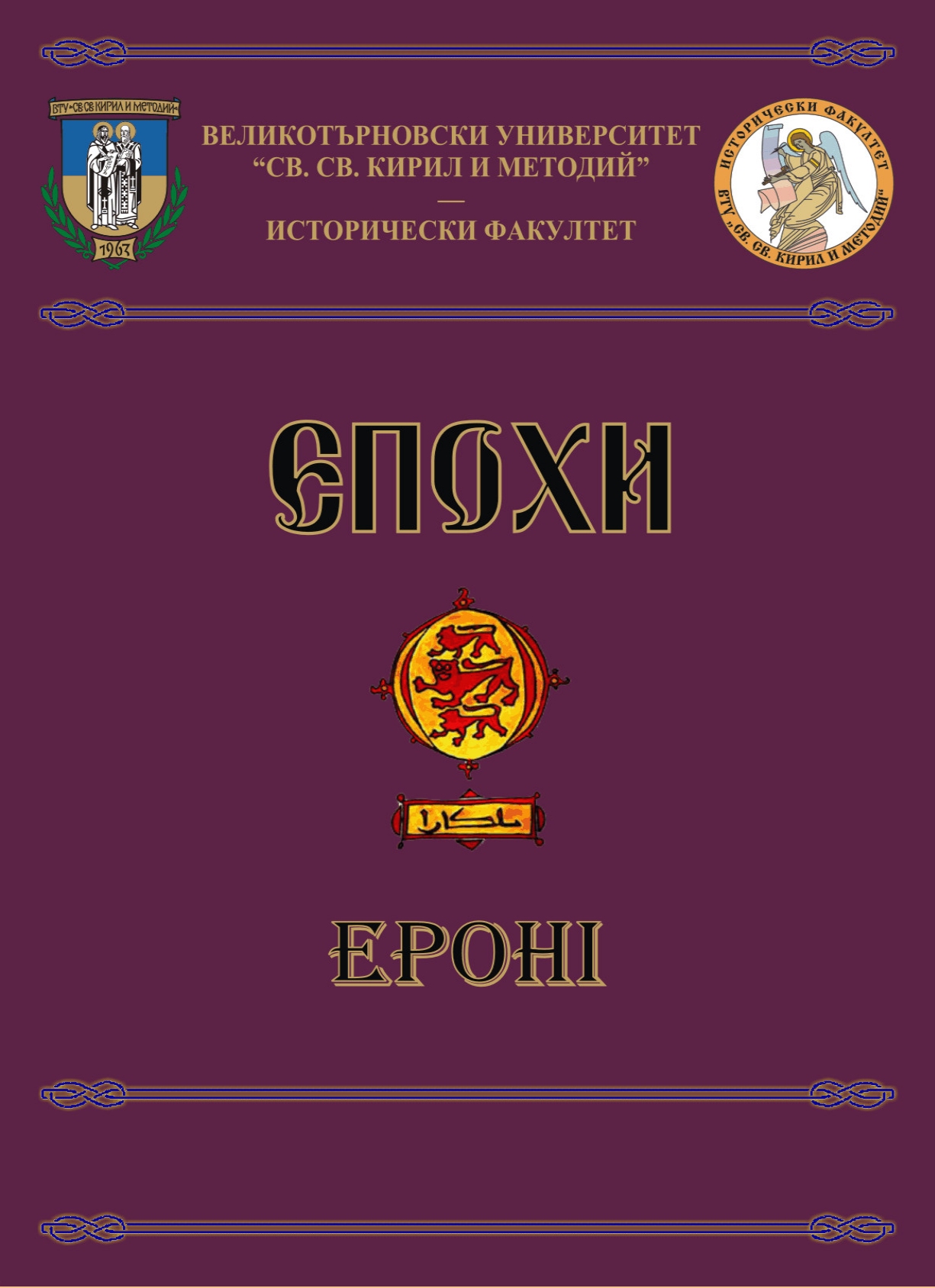
In the article the author examines the infighting that took place in the People’s Liberal Party (“Stambolovist” Party) of Bulgaria in the period of the First World War. During the period 1914-1918 both the supporters and the opponents of the head of the political power N. Genadiev used the collective memory about the eminent statesman Stefan Stambolov in order to achieve certain aims. In the course of twenty years that followed the death of the former Prime Minister of the Principality of Bulgaria his methods of pursuing of the internal and external policy had been one of the factors that influenced the processes of state formation in Bulgaria. The factions of the “Stambolovists”, which had been fighting for influence within the organization, had strived for taking up a position as a real bearers of the idea as well as continuers of the initiatives introduced by the founder of the party during his leadership of the Regency Council and the Cabinet of Ministers. Each of them had taken advantage of St. Stambolov’s memory for the purpose of the solution of certain set tasks, besides, using some controversial versions of the exceptional statesman’s activities.
More...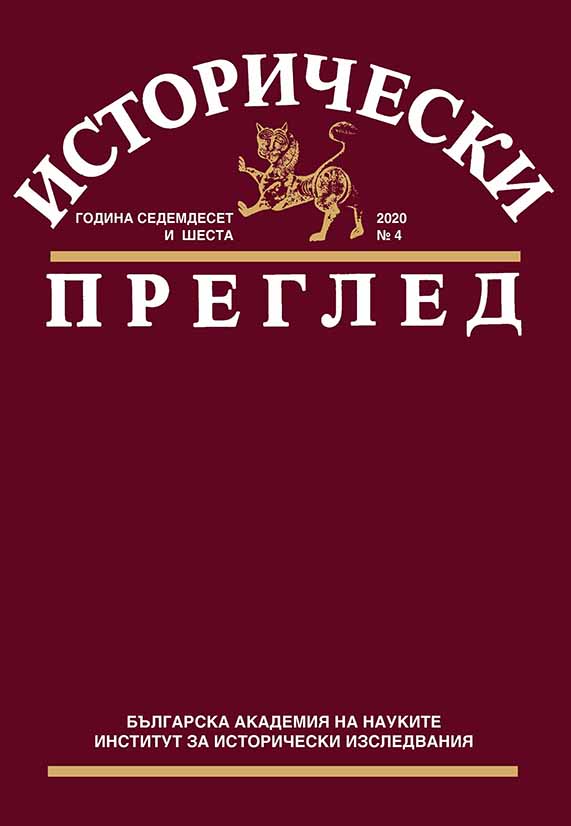
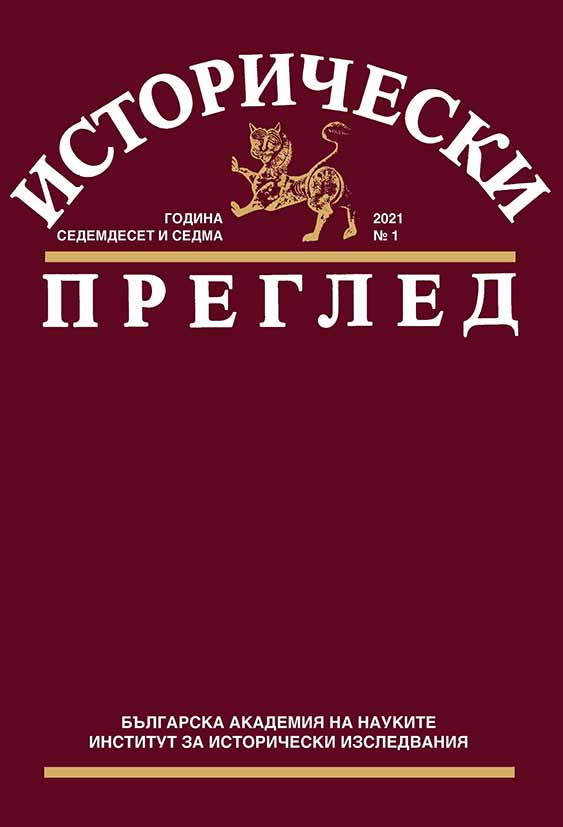
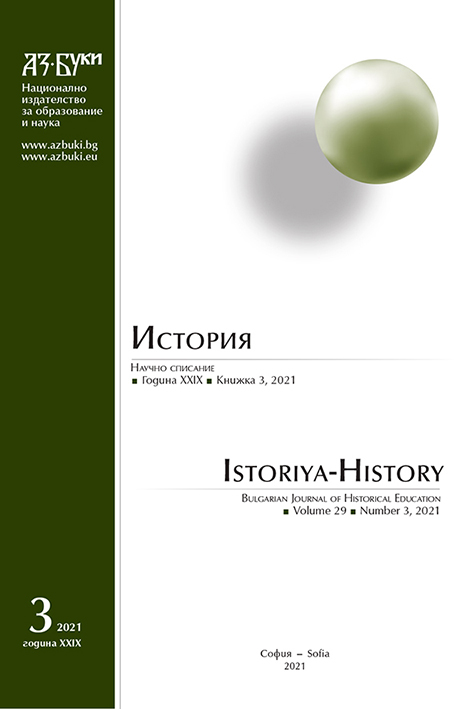
The article reviews military missions of 16th border battalion during First World War. It starts in the 1916 in Dobrudja, then during the period 1916 –1917 conducts operations in Romania and in 1918 at Macedonian front. In two years, in campaigns and battles, the company traveled over 2000 km. There is no other border formation with such a long battle route. The various geographical conditions for conducting the combat operations, the different enemies and combat tasks require the battalion to use various tactical options, which is not typical for the regular military formations. A unique combat experience has been gained that hasn't been studied for more than 100 years.
More...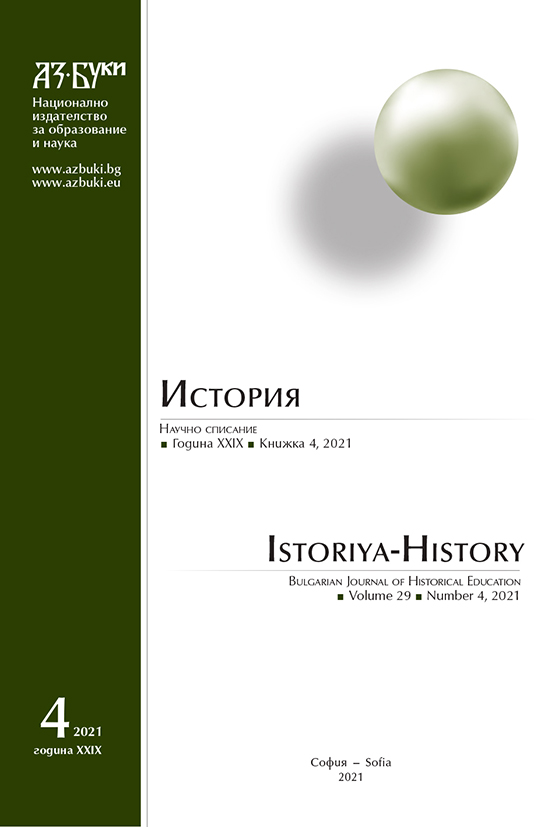
The article is devoted to one of the important aspects of the Stolypin agrarian reform – the practical activities of land settlement commissions in the field of land surveying in Southern Ukraine in 1906 – 1917. The personnel, tasks and functional responsibilities of members of land settlement commissions are clarified. The main types, volumes and results of land surveying works in the region are determined. It is proved that the practice of boundary works differed in the modernization of technical measures for the elimination of cross-strips, small strips, far-flung land, which led to improved field cultivation, increased agricultural yields and rising land prices. Special attention is paid to land management in the Bulgarian colonies of the region.
More...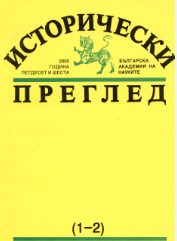
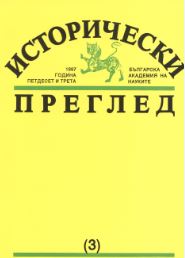
The question of the political and judicial responsibility of ministers was included already in the Turnovo Constitution with the clear awareness of its necessity and from then on it existed in all the drafts and proposals for changes in the fundamental law up to 1947 inclusive. After that public opinion was deliberately diverted in another direction in the search of guilt so that in the last two constitutions (of 1971 and 1991) the responsibility of ministers was tacitly overlooked, and in the Criminal Code the ministers were put on the same footing with officials. The article examines the nature of political responsibility and also the question of judicial responsibility – how it is proceeded, who has the initiative for seeking judicial responsibility, who tries the ministers and what are the possibilities for imposing effective punishment. The constitution drafts of 1935, 1936, 1946 and 1947 are presented and their common features and differences are indicated. From the presented constitutions and constitution drafts it is evident that as regards the political (parliamentary) and criminal (judicial) responsibility of the ministers, the differences between them are neither so numerous nor so essential. The goal of the Bulgarian legislators over a long period of time was to create such constitutional provisions as would have a really restrictive effect on the work of ministers. Although every minister and every cabinet strive to ensure independence in taking decisions and in implementing the comprehensive policy of the government, it should be known also that the responsibility is exclusively of the Council of Ministers. Moreover – all action or inactions of the Cabinet are under the strict control of the legislative power. For any act, for any deed, the minister or the whole cabinet bear political and in certain cases criminal responsibility as wee. It is Parliament that supervises and controls their actions. In the constitutions and draft constitutions existing up to 1947 serious attention was paid to parliamentary responsibility. This was so because it was believed that if the National Assembly acted without allowing gross political passions get the upper hand (irrespective of whether it accused or justified the ministers) the possibility to commit a crime was strongly restricted. The controlling function of the National Assembly was therefore of particular importance also for the upward development of socio-political life and for the conformity with the law of the policy of the government. Unfortunately, both in the older and in the more recent history and also in our contemporary history Parliament and with it the governments, have often fallen prey to their own unrealistic political ambitions.
More...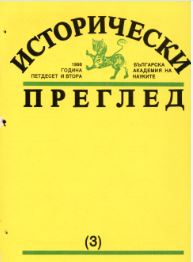
The problems of the foreign policy aspects of the Bulgarian national question (1878-1912) is one of the leading subjects in liberal historiography of the period 1878-1944. Formed under the influence of the European liberalism and historical positivism of the late 19th and early 20th c., Bulgarian historiography was distinguished by thematic variety, interdisciplinary approach, high theoretical and methodical standards and national loyalty. In the spirit of liberal positivism historians analysed the Bulgarian Question within the context of the geostrategic interests of the Great Powers in the Balkans (as part of the Eastern Question). The historical writings objectively reflected the tendencies in Bulgarian foreign policy: 1. Satellitism which was a common "complex" of the small Balkan states; 2. The striving for independent foreign policy, realized to a certain extent during Stefan Stambolov’s cabinets. A number of authors advanced the thesis that the genesis of the foreign policy conflicts in the European South-East was expressed in the confrontation of the European nationalist conceptions: Pan-Germanism, Pan-Slavism, Pan-Turkism, British and French neo-colonialism. The active interference of the Balkan nationalist conceptions found practical realization in the clashes between the armed and cultural-religious propagandas.
More...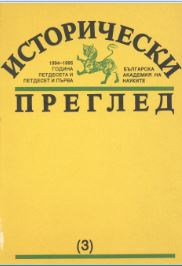
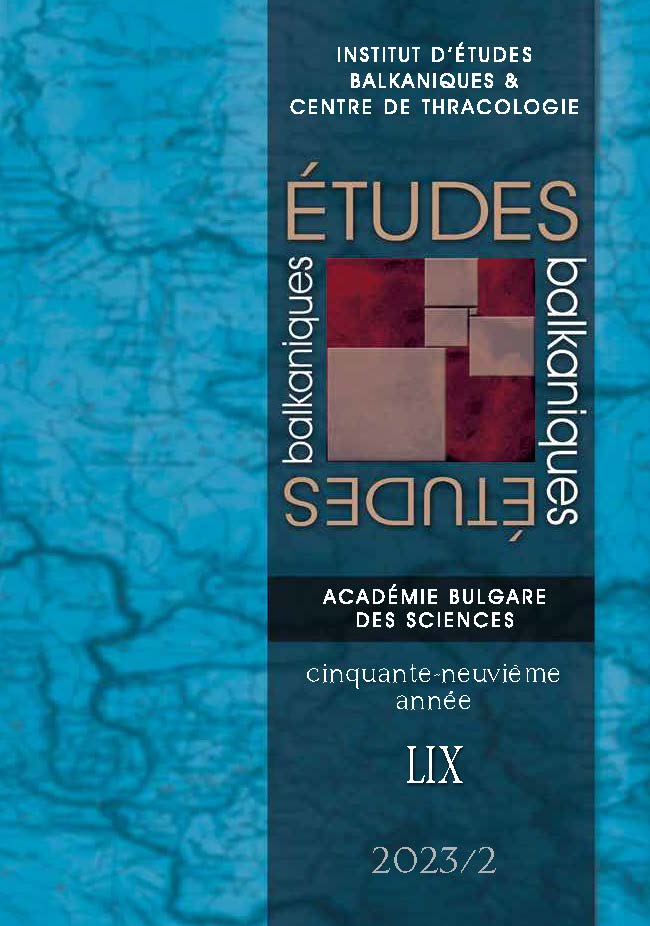
The paper is focused on Kremna, a village in Western Serbia close to the Serbian-Bosnian border where a series of prophetic pronouncements, recorded and publicized in the early 20th century, gained momentum during the demise of Yugoslavia and are undergoing a process of heritage-making. It builds on two kinds of ethnography: visits of the field “site” which is the Museum/Memorial of the Prophecy”, and an ethnography of a main road which crosses the state border and relates two former Yugoslav countries. The first and longer part of the paper is dedicated to Kremna, its prophets, the prophecies and to those promoting it as the “Serbian Delphi”. It first outlines the local context and the history of the purportedly prophetic pronouncements subsequently known by the name of the village. It uncovers the logic and the circumstances in which the Kremna prophecies have been brought to public knowledge, to become a banner of Serbian national aspirations and during the last decades, of nationalism. A special section is dedicated to the legitimation of local prophets and the inscription of their work in the longue durée history as well as in cosmic processes. The second part evolves around the ethnography of the road Užice-Višegrad, Kremna being half way from both. It helps to grasp the overall landscape of history- memory- and heritage sites, the dynamics of their intertwining, and the creation of a kind of symbolic grammar of events, personae and cultural items which impacts the historical imagination. Throughout the paper, attention is paid to the importance of border and of boundaries broadly speaking in the microareas where outspoken national prophets are born and have lived.
More...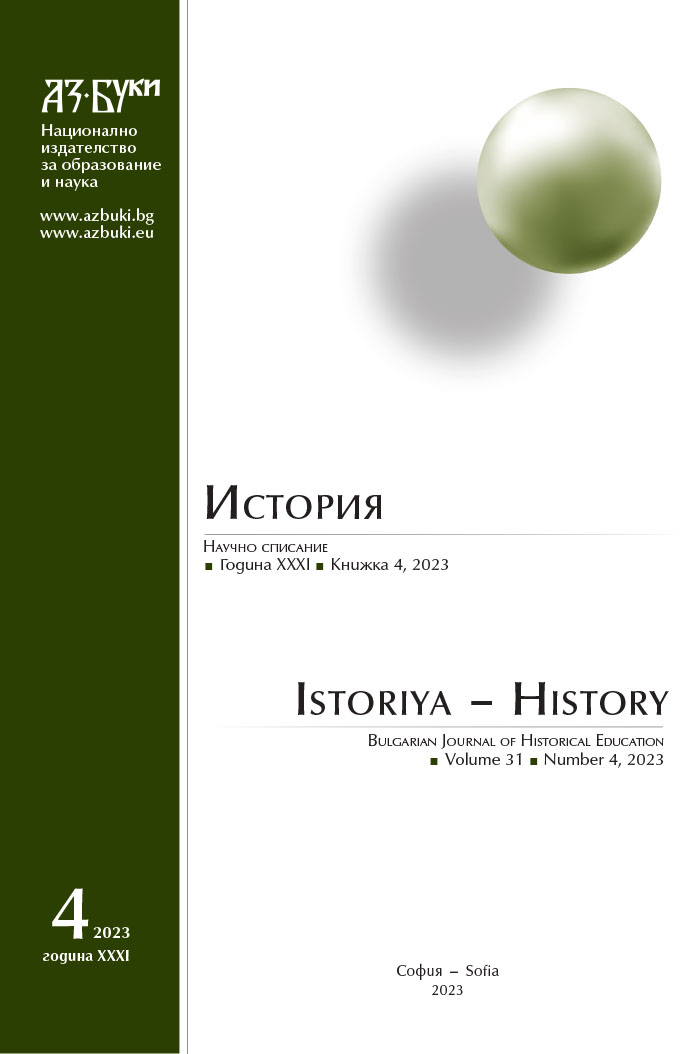
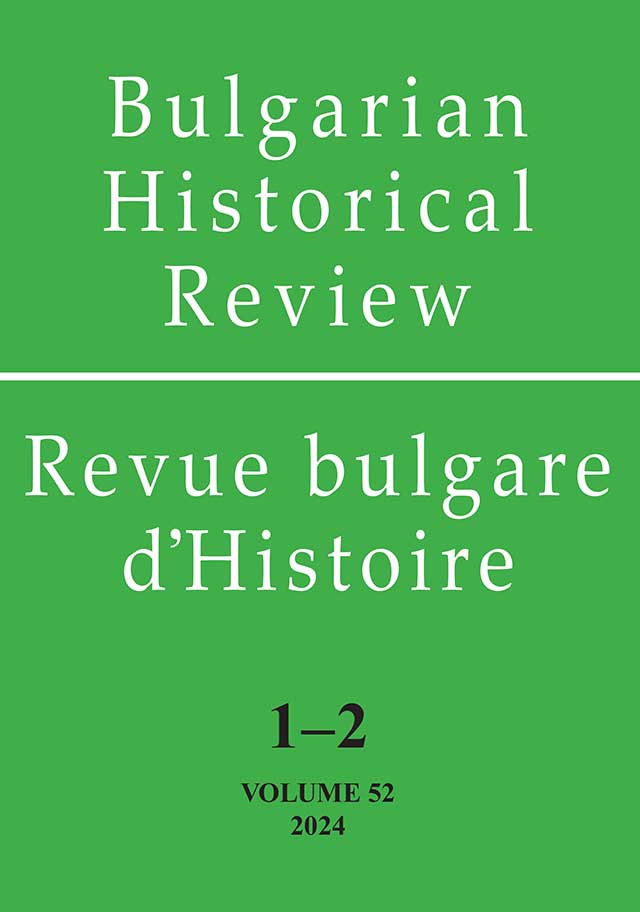
On the basis of extensive research in the State Archives of Montenegro in Cetinje (SAM) within the fund of the Ministry of Internal Affairs of the Principality of Montenegro for the period from 1880 to 1896, as well as relevant literature, we analyzed the situation in Nikšić. Nikšić with its surroundings was one of the largest regions that was annexed to Montenegro after international recognition at the Berlin Congress in 1878. We must emphasize that archival documents with these details were used for the first time in this paper. Documents of similar or the same provenance make an integral part of some monographs used in this paper, but not in this issue and with this much detail. They are about agrarian reform and the distribution of land to the families of Montenegrin soldiers. However, there is hardly no mention that the land was illegally taken from its legal owners, thus violating the provisions of the Berlin Congress of 1878. It is a well-established opinion of readers, including some historians, that Prince Nikola I Petrović Njegoš and the Montenegrin government did everything to comply with the decisions of the Berlin Congress in 1878, which recognized Montenegro internationally. However, the truth is completely different. Muslims who were in conflicts with the Principality of Montenegro for centuries had become its subjects. The best areas of land in the newly liberated regions belonged to them. Contrary to the decisions from Berlin, the Montenegrin authorities did everything to prevent the return of the refugee owners to their property. A huge number of families of Montenegrin warriors who fought against the Ottomans for centuries settled large areas of abandoned land. Cetinje’s secret policy was to prevent the owners from returning through bureaucratic pressure and delay of the process. We found that in relation to the opinion about the correct attitude of the Montenegrin authorities towards Muslims - subjects of the Ottoman Empire, who were almost entirely the population of the Nikšić region, the reality was quite different. Montenegrin authorities have been working for years to evict the Muslim population and appropriate their goods and real estate. Despite the provisions of the Congress of Berlin, which guaranteed all rights to Muslims, the Montenegrin government systematically carried out this intention to the end.
More...
The migration of Bulgarians from Macedonia to the territory of free Bulgaria represents a long and multifaceted process with significant political, demographic and sociocultural implications for the new Bulgarian history. This study provides an overview of the foundational stage of this process spanning from the Liberation in 1878 to The Balkan Wars of 1912–1913. Its internal periodization is determined by the various phases of the Macedonian question, characterized by uprisings, wars and diplomatic endeavors. Throughout this period, migration from Macedonia extended beyond refugees and their settlement, encompassing temporary stays and repeated permanent movements back and forth for economic and other reasons. In many respects and instances, these movements were regulated, restricted and even effectively reversed through the efforts of the Bulgarian state, which prioritized preventing mass emigration from Macedonia in order to avoid the de-Bulgarianization of the region. However, this dynamic shifted dramatically with the Balkan Wars and the First World War, after which the migration of Macedonian Bulgarians became unstoppable, predominantly refugee-driven (or at least forced) and irreversible. In perspective, a very significant part of the modern Bulgarian nation turned out to be Macedonian-Bulgarian in its geographical origin, genealogy and collective memory.
More...
Bulgarians were among the 2,600 foreigners who took part in the South African War, also known as the Second Anglo-Boer War. Their presence helped to make this colonial conflict a matter of international importance. This paper is an attempt to consider the Bulgarian involvement within a context of the pro-Boer campaign in Bulgaria, using published sources of a Bulgarian and international origin and applying the biographical method. Bulgarians travelled to the Transvaal at their own risk and expense. Most of them had military experience and, evidently, expected to improve their combat skills in a modern war against a leading European army. Their sense of kinship with the Boers was evoked by a nationalist paradigm. Bulgarians tended to view the Boers as fellow agriculturalists whose way of life was being threatened by a stronger nation. Most Bulgarians believed that the British Empire, the adversary of the Boers, was to blame for the revision of the terms of the Treaty of San Stefano at the Congress of Berlin. Therefore, Bulgarians delighted in the British misfortunes in the South African War. This sentiment may explain why no volunteer from Bulgaria is known to have fought for the British in that war. Bulgarian volunteers, representing various social groups and occupations, took part in some of the major battles of the South African War. The involvement of these volunteers was an expression of the Bulgarian solidarity with the Boers. Investigating this phenomenon gives us a deeper understanding of the problems and aspirations of Bulgarians at the turn of the twentieth century.
More...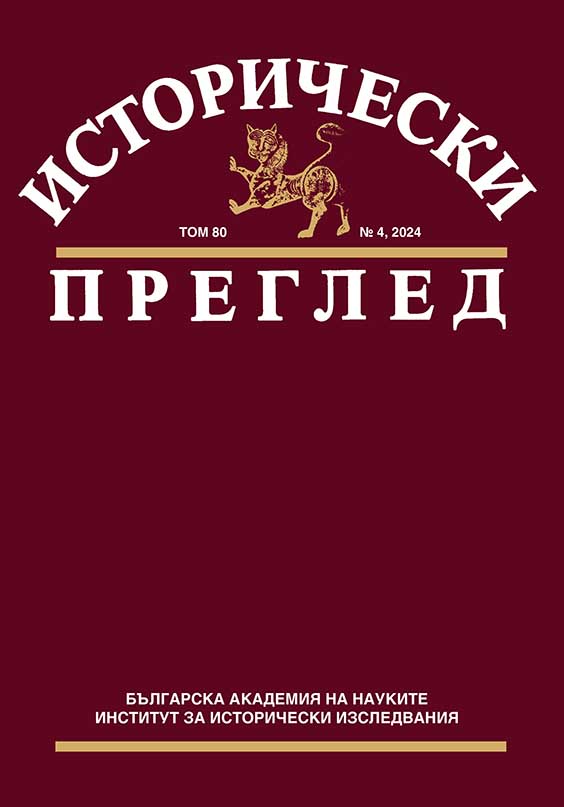
This text explores the life and work of Dr. Haralambi Sarmadzhiev, a Bulgarian diplomat from the late 19th century. His career began as a legal adviser and confidant to the Minister of Foreign Affairs and Denominations, and later he served as a diplomatic agent in Belgrade and Vienna. The article highlights his role in the 1898 International Anti-Anarchist Conference. It also delves into his personal life, including his marriage to Elena Pulieva, an heir of Evlogy Georgiev, and examines the fate of his family after his untimely death and the political changes in Bulgaria post-1944.
More...
This article explores the coverage of the Balkan Wars by V. V. Toporov (Viktorov), a correspondent for the Russian newspaper Rech in Sofia. Over fifty of his publications from this period reveal various aspects of military operations, as well as the structure of the country and its army. However, more significant are his reports on pressing issues. Toporov was one of the first to inform the Russian public about the Serbization and Hellenization of the Bulgarian population in Macedonia. Additionally, he defended the honor of the Bulgarian army in a debate with L. D. Trotsky over war crimes. Following the Balkan Wars, Toporov was preparing a book in which he planned to argue that Bulgaria‘s actions in 1913 and 1915 were forced by external circumstances. Using publications from Rech, correspondence between the journalist and the editorial board, as well as P. N. Milyukov’s archives and other documents, the article reconstructs this stage of the journalist’s life connected with Bulgaria and his defense of its interests.
More...